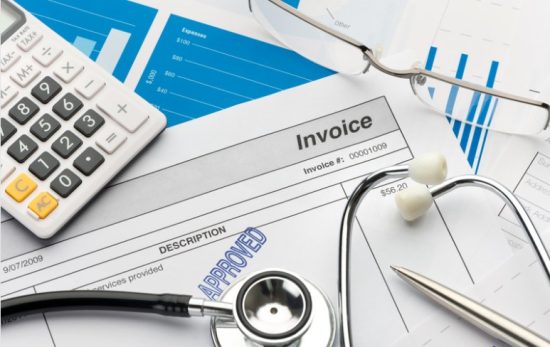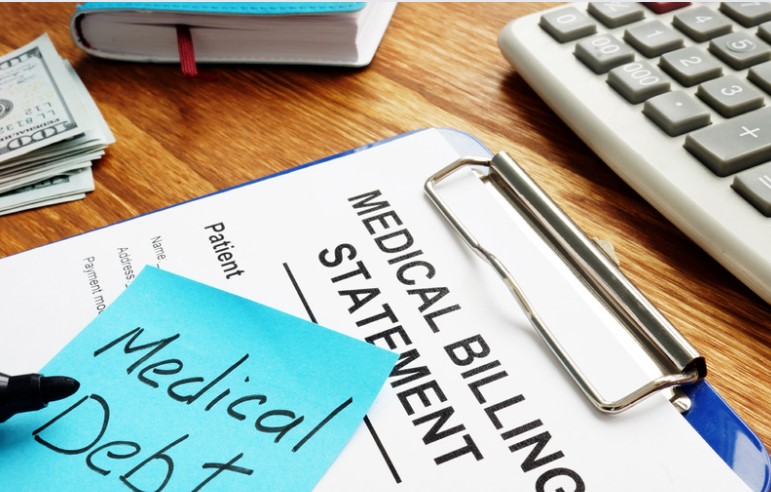Are you curious about how much you can claim for medical expenses on your taxes in Canada? Well, you’ve come to the right place! As tax season rolls around, it’s important to understand what medical expenses are eligible and how they can benefit you financially. Whether it’s prescription medications, hospital care, or even service animal costs, knowing what you can claim could make a significant difference in your bottom line. So let’s dive into the world of medical expense deductions and discover just how much you can potentially save on your taxes this year!
An Overview of Medical Expenses

When it comes to medical expenses, it’s crucial to have a clear understanding of what qualifies as eligible deductions. While the Canada Revenue Agency (CRA) provides guidelines, it’s important to note that their list is not exhaustive. To determine if your expense is eligible, you can refer to the CRA Medical Expense Chart or consult with a tax professional.
Some common examples of medical expenses include prescription medication and drugs (excluding over-the-counter medications), amounts charged by eligible medical practitioners (varying by province or territory), bathroom aids such as grab bars and rails, hearing aids, hospital care, and travel expenses for medical services outside your community if they are more than 40 kilometres away.
Common Medical Expenses
When it comes to claiming medical expenses on your taxes in Canada, it’s crucial to ensure that your expenses are eligible in your specific province or territory. While the Canada Revenue Agency (CRA) provides a list of common medical expenses, it’s important to note that this list is not exhaustive. To determine if a particular expense qualifies and whether you require a prescription for it, you can refer to the CRA Medical Expense Chart.
Some examples of common medical expenses include:
- Prescription medications and drugs (excluding over-the-counter medication)
- Amounts charged by eligible medical practitioners (which may vary depending on your province or territory),
- Bathroom aids such as grab bars and rails,
- Hearing aids
- Hospital care
- Travel expenses for receiving medical treatment outside your community if the services are unavailable locally and you travel more than 40 kilometres
- Insulin and diabetes-related supplies like needles and syringes
- Contact lenses along with equipment and materials for using them
- Private health insurance premiums for medical coverage
- Costs associated with registered medical cannabis from licensed suppliers including cannabis oil and seeds or products made from cannabis plants.
Additionally, service animal costs such as food and veterinarian care can be claimed. If you have used an ambulance service to get to or from a public or licensed private hospital facility when necessary due to emergencies or specialized treatments required.
How Much Can You Claim for Medical Expenses on Taxes?

The amount you can claim for medical expenses on your taxes in Canada is determined by your net income. For the 2022 tax year, you are eligible to claim the lesser of 3% of your net income or $2,479. This means that if your net income is $50,000, you can claim up to $1,500 (3% of $50,000) in medical expenses.
Claiming medical expenses can provide valuable tax savings and help alleviate some of the financial burden associated with healthcare costs. It’s important to keep track of all eligible medical expenses throughout the year and ensure that you have proper documentation to support your claims.
Remember that not all medical expenses are eligible for a tax deduction. The Canada Revenue Agency (CRA) provides a list of common eligible medical expenses on its website. It’s crucial to review this list and consult with a tax professional if you have any doubts about the eligibility of certain expenses.
How to Claim Medical Expenses in Canada?
To claim your medical expenses on your tax return in Canada, you’ll need to know where exactly to report them. Luckily, it’s a straightforward process. You can claim your medical expenses by filling out either line 33099 or line 33199 of your tax return under Step 5 – Federal tax.
Line 33099 allows you to claim the total eligible medical expenses that you or your spouse or common-law partner paid for yourself, as well as for your children who were under 18 years old at the end of the tax year.
On the other hand, line 33199 is for claiming the portion of eligible medical expenses that you or your spouse or common-law partner paid for dependents who relied on you for support. This includes children who were 18 years old or older at the end of the tax year, grandchildren, parents, grandparents, siblings, uncles, aunts, nephews/nieces residing in Canada during any part of that year.
Remember that if you have multiple dependents and are claiming their medical expenses on line 33199, you will need to calculate and list each individual’s specific costs separately.
Be sure to accurately fill out all necessary information and keep proper documentation such as receipts with details like provider name and address; service dates; expense amounts; and reasons behind each expense. These documents serve as evidence when supporting your claims later on.
Documents Requirements for Claiming Medical Expenses
When it comes to claiming medical expenses on your taxes in Canada, documentation is key. To support your claims and ensure that you are accurately reporting your expenses, it’s important to keep all of your receipts and other necessary documentation.
Make sure you have the name and address of the medical provider who provided the services or products related to your expenses. This information will help validate the legitimacy of your claim and provide a record for future reference.
Additionally, be sure to note down the date of each service or purchase. This will help establish a timeline for when these expenses occurred, which can be especially useful if you need to track multiple visits or ongoing treatments throughout the year.
Of course, knowing the amount spent on each expense is crucial as well. By keeping track of this information, you can accurately report how much money has been allocated towards medical costs during tax season.
Include a brief description or reason for each expense incurred. This detail helps provide context for why these particular services or products were necessary for your health and well-being.
Common Mistakes to Avoid When Claiming Medical Expenses

When it comes to claiming medical expenses on your taxes in Canada, there are a few common mistakes that you’ll want to avoid. These mistakes can end up costing you money or even trigger an audit from the Canada Revenue Agency (CRA), so it’s important to steer clear of them.
- First and foremost, one of the most crucial things to remember is to keep all of your receipts and other documentation. This includes invoices, statements, and any other forms of proof for the medical expenses you’re claiming. Without this documentation, your claim may be denied or questioned by the CRA.
- Another mistake to avoid is claiming expenses that are not eligible. The CRA has specific guidelines on what qualifies as a medical expense, so make sure you review their list before submitting your claim. For example, over-the-counter medications are generally not eligible for reimbursement.
- Additionally, be cautious about claiming expenses that you have already claimed in a previous year. The CRA keeps track of these claims and if they find duplicates, it could raise red flags.
- By avoiding these common mistakes when claiming medical expenses on your taxes in Canada,
- You can maximize your reimbursement potential while staying compliant with tax regulations.
Conclusion
Claiming medical expenses on your taxes in Canada can provide some financial relief. By understanding which expenses are eligible and keeping proper documentation, you can maximize the amount you claim.
Remember to consult the CRA’s Medical Expense Chart to ensure your expenses qualify. Common medical expenses include prescription medication, amounts charged by medical practitioners, bathroom aids, hearing aids, hospital care, travel expenses for out-of-community care, and more.
By following these guidelines and being well-informed about allowable deductions in Canada’s tax system regarding medical costs—your next tax season may yield valuable savings!
FAQs – How Much Can You Claim for Medical Expenses on Taxes in Canada?
1. What amount of medical expenses are tax deductible Canada?
In Canada, both federal and provincial/territorial governments allow taxpayers to claim eligible medical costs as a non-refundable tax credit (Medical Expense Tax Credit). For the 2022 income tax year, the minimal threshold for medical expenses is $2,479, or 3% of your net income, whichever is lower.
2. What percentage of medical expenses do you get back on taxes Canada?
You do not get a percentage of your medical expenses back on your taxes. Instead, you can claim the lesser of 3% of your net income or $2,479 as a deduction from your taxable income. This means that for every dollar you claim, you will save that dollar in taxes.
3. What is the maximum medical expense claim in Canada?
The maximum medical expense claim in Canada is $2,479 for the 2023 tax year. This is the amount you can claim if your net income is less than $82,633. If your net income is higher than $82,633, the maximum medical expense claim is 3% of your net income.
4. How much medical expenses can I claim on my income tax?
The amount of medical expenses you can claim on your income tax depends on your net income and the type of expenses you incur. You can claim the lesser of 3% of your net income or $2,479 for most medical expenses. However, some expenses have a higher maximum claim, such as prescription drugs and insulin.











